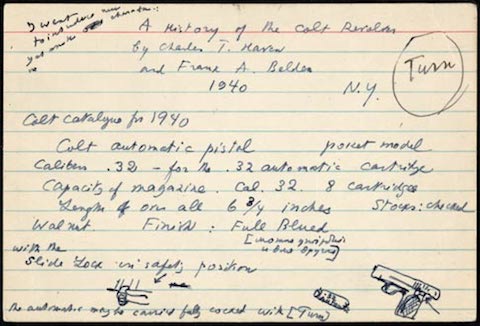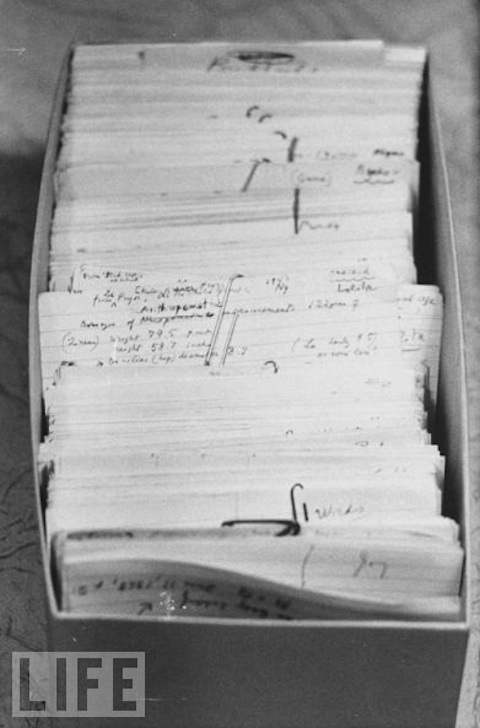References
Artz, B., Johnson, M., Robson, D., & Taengnoi, S. (2017). Note-taking in the digital age: Evidence from classroom random control trials. http://doi.org/10.2139/ssrn.3036455
Boyle, J. R. (2013). Strategic note-taking for inclusive middle school science classrooms. Remedial and Special Education, 34(2), 78-90. https://doi.org/10.1177%2F0741932511410862
Carter, S. P., Greenberg, K., & Walker, M. S. (2017). The impact of computer usage on academic performance: Evidence from a randomized trial at the United States Military Academy. Economics of Education Review, 56, 118-132. https://doi.org/10.1016/j.econedurev.2016.12.005
Chang, W., & Ku, Y. (2014). The effects of note-taking skills instruction on elementary students’ reading. The Journal of Educational Research, 108(4), 278–291. https://doi.org/10.1080/00220671.2014.886175
Dynarski, S. (2017). For Note Taking, Low-Tech is Often Best. Retrieved from https://www.gse.harvard.edu/news/uk/17/08/note-taking-low-tech-often-best
Haydon, T., Mancil, G.R., Kroeger, S.D., McLeskey, J., & Lin, W.J. (2011). A review of the effectiveness of guided notes for students who struggle learning academic content. Preventing School Failure: Alternative Education for Children and Youth, 55(4), 226-231. http://doi.org/10.1080/1045988X.2010.548415
Holland, B. (2017). Note taking editorials – groundhog day all over again. Retrieved from http://brholland.com/note-taking-editorials-groundhog-day-all-over-again/
Kiewra, K.A. (1985). Providing the instructor’s notes: an effective addition to student notetaking. Educational Psychologist, 20(1), 33-39. https://doi.org/10.1207/s15326985ep2001_5
Kiewra, K.A. (2002). How classroom teachers can help students learn and teach them how to learn. Theory into Practice, 41(2), 71-80. https://doi.org/10.1207/s15430421tip4102_3
Luo, L., Kiewra, K.A. & Samuelson, L. (2016). Revising lecture notes: how revision, pauses, and partners affect note taking and achievement. Instructional Science, 44(1). 45-67. https://doi.org/10.1007/s11251-016-9370-4
Mueller, P.A., & Oppenheimer, D.M. (2014). The pen is mightier than the keyboard: Advantages of longhand over laptop note taking. Psychological Science, 25(6), 1159-1168. https://doi.org/10.1177/0956797614524581
Nye, P.A., Crooks, T.J., Powley, M., & Tripp, G. (1984). Student note-taking related to university examination performance. Higher Education, 13(1), 85-97. https://doi.org/10.1007/BF00136532
Rahmani, M., & Sadeghi, K. (2011). Effects of note-taking training on reading comprehension and recall. The Reading Matrix, 11(2). Retrieved from https://pdfs.semanticscholar.org/85a8/f016516e61de663ac9413d9bec58fa07bccd.pdf
Reynolds, S.M., & Tackie, R.N. (2016). A novel approach to skeleton-note instruction in large engineering courses: Unified and concise handouts that are fun and colorful. American Society for Engineering Education Annual Conference & Exposition, New Orleans, LA, June 26-29, 2016. Retrieved from https://www.asee.org/public/conferences/64/papers/15115/view
Robin, A., Foxx, R. M., Martello, J., & Archable, C. (1977). Teaching note-taking skills to underachieving college students. The Journal of Educational Research, 71(2), 81-85. https://doi.org/10.1080/00220671.1977.10885042
Wammes, J.D., Meade, M.E., & Fernandes, M.A. (2016). The drawing effect: Evidence for reliable and robust memory benefits in free recall. The Quarterly Journal of Experimental Psychology, 69(9). http://doi.org/10.1080/17470218.2015.1094494
Wu, J. Y., & Xie, C. (2018). Using time pressure and note-taking to prevent digital distraction behavior and enhance online search performance: Perspectives from the load theory of attention and cognitive control. Computers in Human Behavior, 88, 244-254. https://doi.org/10.1016/j.chb.2018.07.008


